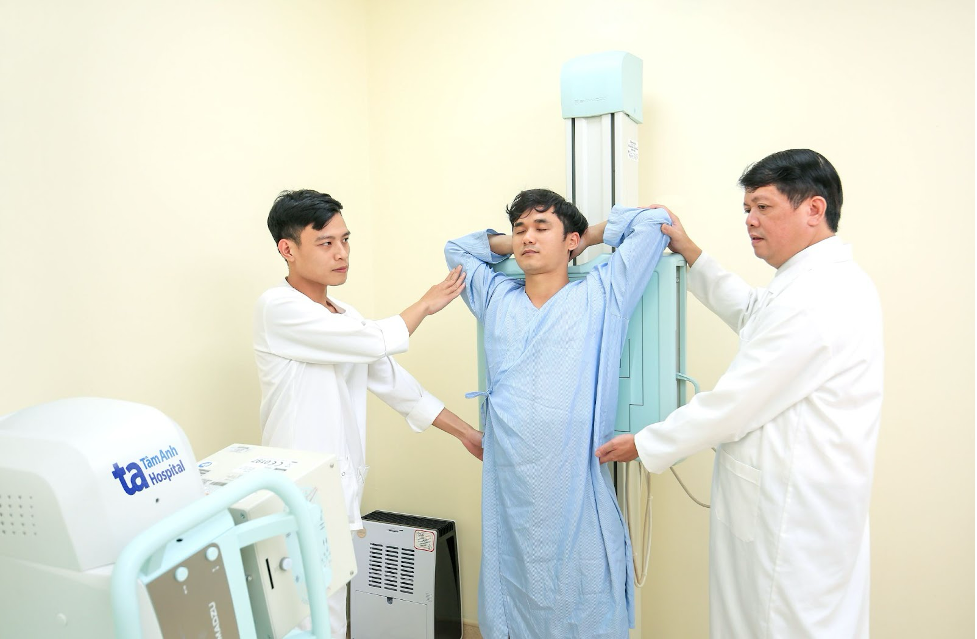Answer:
Chest X-rays are a readily available imaging method widely used in routine health checkups. However, this method struggles to detect small lesions or those hidden behind ribs, in the mediastinum, or near the hilum of the lung. Malignant lesions smaller than 1 cm are often not clearly visible on X-rays. The images on an X-ray cannot help doctors differentiate between benign and malignant tumors.
Currently, low-dose computed tomography (CT) scans of the lungs are more effective in screening for lung cancer. This method uses X-rays with a lower radiation dose than usual, allowing for detailed images of the entire chest. This technique can detect very small lesions, just a few millimeters in diameter, enabling doctors to detect the disease before noticeable symptoms appear. Low-dose CT helps doctors pinpoint the location, shape, and boundaries of lesions, differentiating between those in the center of the lung, near the heart, or the hilum—areas that X-rays often miss. Through CT scans, doctors can also monitor tumor growth and changes in shape.
However, not everyone needs a CT scan. According to recommendations from the World Health Organization and cancer associations, high-risk individuals include those over 50, smokers, those with a family history of lung cancer, people working in hazardous environments, and those with chronic lung conditions (pneumonia, prior tuberculosis, etc.). These individuals should be screened using low-dose chest CT.
 |
A patient receives instructions for a chest X-ray. Photo illustration: Tam Anh General Hospital |
A patient receives instructions for a chest X-ray. Photo illustration: Tam Anh General Hospital
Some blood tests, such as CYFRA 21-1, CEA, and SCC, or newer technologies like ctDNA liquid biopsy, are being researched to aid in lung cancer diagnosis. However, currently, no blood test is sensitive or specific enough to be recommended as an official early lung cancer screening tool. Patients should not overuse these blood tests for cancer screening without a recommendation.
If you have a cough, you should see a doctor to determine the cause. If the cough persists for more than 5-6 weeks, accompanied by chest pain, shortness of breath, or weight loss, your doctor may recommend more in-depth screening methods for an accurate diagnosis and appropriate treatment.
Dr. Nguyen Thanh Trung
Oncology Department
Tam Anh General Hospital, Hanoi
| Readers can submit questions about cancer here for doctors to answer. |












